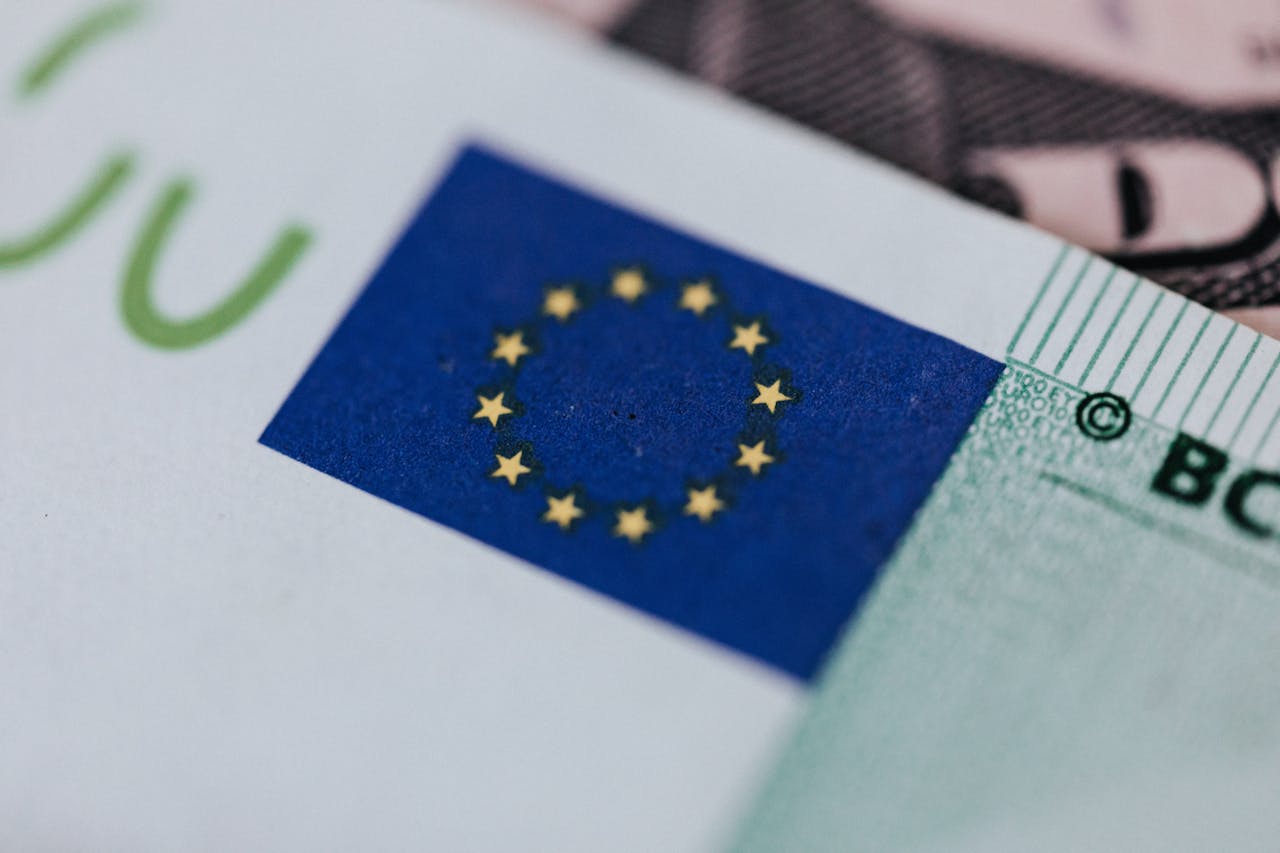Crypto
MiCA Deadline: What the New EU Rules Mean for Crypto Investors
The EU’s MiCA regulation, effective from 2024, standardizes crypto oversight. It mandates stablecoin approvals, customer identification, and bans privacy coins like Monero. DeFi and NFTs remain largely unaffected. While exchanges adapt, USDC emerges as the EU’s stablecoin standard. Banks gain clear crypto guidelines, fostering adoption. MiCA aims to ensure security and transparency without stifling innovation.

The so-called MiCA rules for the crypto industry have been in force in the EU since the turn of the year. This also affects investors like you, for example with stablecoins, payouts and privacy coins.
In spring 2023, the EU adopted the MiCA (Markets in Crypto-Assets) regulatory package and granted a transition period until the end of 2024. This should give crypto exchanges and other market participants sufficient time to review their offerings and, if necessary, adapt them to the new rules. Since the turn of the year, the implementation of MiCA has been mandatory in the EU member states, including Germany.
MiCA has consequences for you as an investor:
Stablecoins: MiCA defines and regulates stablecoins. Their issuers had to obtain approval, prove reserves and, in some cases, deposit them with banks in the EU. Tether (USDT), as the market leader among stablecoins, has so far dispensed with this procedure. This is why leading crypto exchanges such as Coinbase have already delisted Tether in the EU.
Coinbase has also removed various other stablecoins such as Paxos (PAX), PayPal USD (PYUSD), Gemini Dollar (GUSD) and DAI from its portfolio. If you hold balances in stablecoins that do not have a MiCA license, you will now be forced to exchange them. For the moment, it is becoming apparent that the stablecoin USDC, which meets the conditions of MiCA, will become the standard in Europe.
Binance, the world’s largest crypto exchange, also wants to increasingly rely on USDC in the EU. The stablecoin, which is linked to the US dollar, is the responsibility of the FinTech Circle, and Coinbase is also involved. In the crypto scene, the importance of stablecoins that reflect the euro is expected to grow. Circle has EURC in its program.
Transactions: MiCA forces crypto exchanges and related platforms to clearly identify customers, document their actions and report suspicious cases. The EU is concerned with preventing money laundering, terrorist financing, tax fraud and other illegal activities in which Bitcoin and Co. have repeatedly been caught. You may now find that the crypto exchange of your choice repeats or tightens the identity check. Problems can arise if you want to transfer crypto balances, including to hardware wallets. Here you can now see that crypto exchanges require detailed information about where the coins are going.
Privacy Coins: Monero (XMR) and ZCash are the best-known cryptocurrencies that value anonymity in their basic concept. This has long made them a thorn in the side of authorities and the vast majority of large crypto exchanges have already stopped supporting Monero and other privacy coins in 2024. With MiCA, privacy coins are banned if centralized trading platforms cannot establish the owners’ transaction history. Alternative options for dealing with Monero remain decentralized crypto exchanges and direct trading.
Decentralized finance: MiCA does not directly address the growth sector of DeFi. The EU has so far limited itself to regulating the crypto industry where there are clear points of contact. For the time being, DeFi with flagships such as Uniswap will not be hindered in the EU. It remains to be seen whether national supervisory authorities will try to apply MiCA to DeFi.
Banks: MiCA provides traditional banks like Sparkasse with a clear legal basis for the crypto sector, from trading to storage. This makes it more likely that more financial institutions in Germany will include Bitcoin and Co. in their range of products. Experience shows that potential customers like you will then carefully check fee policies and exchange rates, which are usually less attractive than those on crypto exchanges.
NFTs: MiCA does not normally want to regulate digital collectibles and other applications of NFTs, so there is no need for you to take any action here for now.
White papers : MiCA requires that cryptocurrency issuers submit a white paper that contains information about the project, reserves, possible inflation and other important factors. The area of energy consumption should also be covered in the crypto white papers. Investors like you should benefit from the white paper requirement in that at least new cryptocurrencies get a kind of “stock exchange prospectus” and you can base your decisions on more information.
Conclusion: MiCA shock for crypto in the EU does not occur – moderate regulation
When MiCA was adopted and gradually introduced, major crypto exchanges and industry associations generally welcomed the package. A situation like in the USA was avoided, where the SEC acted seemingly arbitrarily for years and initiated dozens of lawsuits against the crypto industry. Now that President Donald Trump is striving for transparent and practical regulation of cryptocurrencies and exchanges in the USA, his team is certainly looking to MiCA as inspiration.
If you live in the EU, you will now mainly experience the effects of MiCA when dealing with stablecoins and, under certain circumstances, transactions. Be prepared for a transitional phase. With regard to tax issues, MiCA is not relevant; the individual EU states continue to pursue their own course here and in Germany, no additional or increased taxes were planned at the turn of the year compared to previous years. In the medium term, it remains to be seen whether MiCA will enable the crypto industry and its customers to achieve greater security and transparency as desired.
__
(Featured image by Kaboompics.com via Pexels)
DISCLAIMER: This article was written by a third party contributor and does not reflect the opinion of Born2Invest, its management, staff or its associates. Please review our disclaimer for more information.
This article may include forward-looking statements. These forward-looking statements generally are identified by the words “believe,” “project,” “estimate,” “become,” “plan,” “will,” and similar expressions. These forward-looking statements involve known and unknown risks as well as uncertainties, including those discussed in the following cautionary statements and elsewhere in this article and on this site. Although the Company may believe that its expectations are based on reasonable assumptions, the actual results that the Company may achieve may differ materially from any forward-looking statements, which reflect the opinions of the management of the Company only as of the date hereof. Additionally, please make sure to read these important disclosures.
First published in BLOCK-BUILDERS.DE. A third-party contributor translated and adapted the article from the original. In case of discrepancy, the original will prevail.
Although we made reasonable efforts to provide accurate translations, some parts may be incorrect. Born2Invest assumes no responsibility for errors, omissions or ambiguities in the translations provided on this website. Any person or entity relying on translated content does so at their own risk. Born2Invest is not responsible for losses caused by such reliance on the accuracy or reliability of translated information. If you wish to report an error or inaccuracy in the translation, we encourage you to contact us

-

 Impact Investing2 weeks ago
Impact Investing2 weeks agoClimate Losses Drive New Risk Training in Agriculture Led by Cineas and Asnacodi Italia
-

 Cannabis9 minutes ago
Cannabis9 minutes agoColombia Moves to Finalize Medicinal Cannabis Regulations by March
-

 Crowdfunding1 week ago
Crowdfunding1 week agoReal Estate Crowdfunding in Mexico: High Returns, Heavy Regulation, and Tax Inequality
-

 Africa2 weeks ago
Africa2 weeks agoAgadir Allocates Budget Surplus to Urban Development and Municipal Projects
























